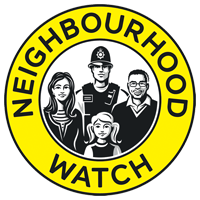Watch out for fake text messages claiming to be from Ofgem and offering a £400 energy rebate - it's a scam
Action Fraud, which collects reports of fraud on behalf of the police, has issued a warning for people to beware of fake text messages claiming to be from Ofgem, the energy regulator, which offers bogus £400 rebates. But this is a scam and you should not reply to it.
The text, which claims and appears to be from Ofgem, says that the recipient is eligible for a £400 energy rebate. In May, Chancellor Rishi Sunak announced that in all households with an electricity supply would receive a £400 grant. This will be paid in lump sums from October.
The text message then asks people to click a link to 'complete their application'. This is a scam and is not from the energy regulator. You will never be texted by Ofgem to sign-up to anything in order to get money or a rebate.
It isn't clear how many people this text has been sent to, but if you have received it then do not respond to it or click the link as that could enable scammers to get your data and take your money.
For more information on stopping scams research the 30+ ways to stop scams guide.
Action Fraud posted a tweet to users on Monday (13 June)
If you're worried you've been scammed here's what to do
Below is a checklist of what you should do if you think you've been scammed:
- If you've already responded to a scam, end all further communication immediately.
- Call your bank directly and cancel any recurring payments – for speed and ease, you can alternatively call the new 159 hotline.
- Report the scam to the police through Action Fraud on 0300 123 2040, or report a scam anonymously on the Action Fraud website. If you're in Scotland, report a scam through Advice Direct Scotland on 0808 164 6000 or on the Advice Direct Scotland website. You can also report scams to Police Scotland on 101.
- If you wish to seek further help, contact Citizens Advice Scams Action via the Citizens Advice website, or call its Scams Action helpline on 0808 250 5050. Alternatively, you can contact the helpline of the Financial Conduct Authority, the financial regulator, on 0800 111 6768.
Also see our 30 ways to stop scams guide for more information.
Here's how you can report a wide variety of scams quickly
The NCSC sets out a number of different ways to report scams depending on the type:
- Email scams. If you get a dodgy looking email you can report it to the NCSC by forwarding it to report@phishing.gov.uk. Remember not to click on any links within these emails.
- Text scams. If you get a suspicious text message you can forward it to the number '7726' - this will allow your provider to track the origin of the text and arrange to block or ban the sender if it's a scam. You can also report scam text messages to report@phishing.gov.uk by providing a screenshot of the text message.
- Website scams. If you notice a website that doesn't look quite right you can easily report the URL to the NCSC directly via its online form.
- Scams adverts. These can currently be reported to the Advertising Standards Authority (ASA) through its online form. But as the new Online Safety Bill will include online scam ads it means regulators, such as Ofcom, will have to work proactively with social media platforms and search engines to take them down. In the meantime, however, you should report any scam ads to ASA.
